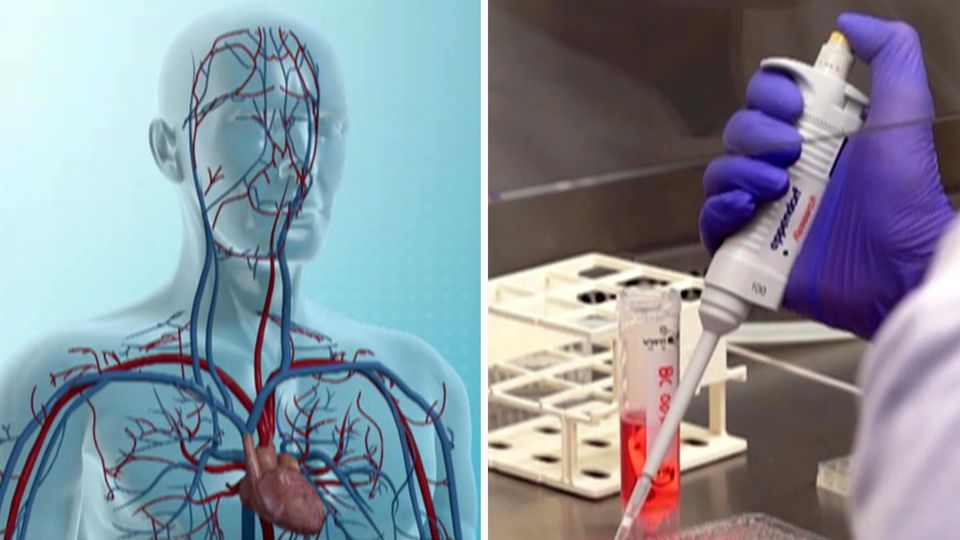Constantly tired, unfocused, sleepless – is that stress-related or a long-term consequence of Corona? British researchers have now found evidence in the blood that could simplify a Long Covid diagnosis. A simple blood test would then provide certainty.
More and more people are suffering from long-term corona consequences – and they can drag on for months. “The symptoms are very colorful and very broad,” said virologist Sandra Ciesek recently in the “Coronavirus Update” podcast. This is one of the reasons why experts fear that a large number of those suffering from secondary damage do not even know that it is Long Covid that is tormenting them. Diagnosis is difficult. Researchers are now drawing hope from a British pilot study. It could be the stumbling block for a new diagnostic tool. In the future, according to the vision, a simple blood test could provide clarity.
A research group from Imperial College in London took a closer look at the blood of Long Covid patients and found irregularities. Accordingly, they found so-called autoantibodies in people with persistent symptoms, but not in people who had quickly recovered from the corona infection or were never infected. According to Danny Altmann, who heads the research group, they could be a cause of Long Covid symptoms.
When it comes to fighting a disease, the body usually makes antibodies. But sometimes autoantibodies are also produced. Unlike antibodies, these do not work against the virus, but against the body itself. Autoantibodies attack healthy tissue, which can cause permanent damage. Among other things, they are suspected of not only aggravating existing autoimmune diseases, but also of triggering them. Autoantibodies can therefore be an important marker in the diagnosis of certain diseases.
Does the blood provide information about Long-Covid?
If the findings of Imperial College were to be confirmed in the further course of the study, these autoantibodies could also provide solid evidence for long-covid diseases that were previously difficult to diagnose. One way to do this would be to do simple blood tests. The researchers hope to be able to develop one within six to 18 months. But the study is still at an early stage. So far, only the blood of a few dozen test persons has been compared. This sample size can be expanded later. These results could not be considered a breakthrough, said Danny Altmann. But they are “a very exciting step forward”.
It is not new that autoantibodies could possibly play a role in corona diseases. Scientists had previously found antibodies in patients that do not work against the virus but are directed against the body itself. The one published in the specialist magazine “Nature” found a large number of autoantibodies in corona patients, for example, which work against blood vessels, the nervous system and also against the immune system itself.

No infection, no consequential damage
The fight against the coronavirus is not just one against an acute infection. Because even those who allegedly survive this without any problems can, in retrospect, be confronted with symptoms. Experts estimate that 10 to 20 percent of all infected people subsequently struggle with long-term consequences. Others even assume 50 to 70 percent. There are also children among them. It is estimated that five to ten percent of cases develop long-covid among them. However, there are no reliable figures on this for Germany.
Common symptoms include pathological exhaustion, sleep disorders, concentration and memory problems and circulatory problems. The list is long and the consequential damage can be stubborn. According to a study by the Heidelberg University Hospital, the majority of the participating Long Covid patients had not fully recovered even one year after the virus infection, and around 73 percent of the study group continued to suffer from the after-effects of the disease.
Only those who do not become infected with the virus in the first place are immune from developing Long-Covid. The most important tool against illness is the corona vaccination. In Germany, 58.7 percent of the population has now received at least one vaccination dose, 43 percent are fully vaccinated. Due to the delta variant, which is spreading rapidly and is considered highly contagious, experts assume that a vaccination rate of at least 85 percent will be necessary. But the number of first vaccinations is falling. It is therefore hotly debated whether vaccination incentives could give the campaign new impetus.
At the same time, further easing of corona measures are planned. Is that the right step in view of the increasing data on Long-Covid? The question must be answered, “whether we want to prevent the long-covid cases when all sectors are planned to open, or say: it’s your own fault, you had vaccinations,” tweeted the SPD health expert Karl Lauterbach. In this case, according to Lauterbach, at least the children should be offered a vaccination “before the infection starts”.




